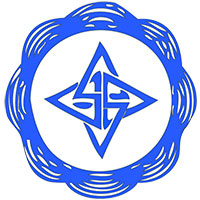It’s fall here in Middle TN, but if you blink, you might miss it. After record breaking days with temperatures over 90 degrees last week, some of us will be seeing temps in the 30’s in the next week.
These wide temp swings are commonplace here in Middle Tennessee and set the mood for end of year reflection… and for scary thoughts around Halloween.
Wide swings (and scary things) are also becoming commonplace in the business and computing world. For example, Microsoft is forcing people off their local accounts by making it almost impossible to create a local account when setting up a new computer.
Having a local account means you can store your files locally on your computer. New computers are especially impacted since they have less storage. Having less storage means you will be forced to store your files in the Cloud on Microsoft OneDrive.
This is because Microsoft is moving away from hardware dependent software to software that will run anywhere, independent of hardware, including Apple Macs and Chromebooks.
Google, for the most part, has done the same thing as Microsoft. As long as you have the Chrome browser and a Gmail account you have access to all things Google. But if Google has an issue, then your data could be at risk and you may not be able to do your work.
Apple is still tied to their hardware and locked down operating system. So the same thing applies. If Apple has issues you don’t have any other alternatives. If you don’t have a Mac, you may not be able to work or do anything online like you’re used to.
There are pros and cons to this. Yes, in our super connected online world you can work and play anywhere. But think about this… if you are using software from another country, then suddenly your government, or the other government stops allowing the use of the software. What happens to your data and your ability to work?
Sounds far-fetched? In Venezuela, Adobe was recently shut down from the United States. Anyone working with Adobe software lost access to the cloud-based programs. So whatever work they were doing at the time, that involved using Adobe products, was gone. With the trade wars going on, who’s to say what’s next?
Another example is Kaspersky. Kaspersky is a large antivirus company out of Russia. A few years ago, after shady things were being released about their product, it was pulled from the majority of US markets. Good, or bad, it left our government and a multitude of businesses scrambling for other options.
Having personal and business data in the hands of major companies is great, right? That is until they are breached and your sensitive data is released. As a person, it could ruin you financially, or medically. As a small business if could leave you open for liability, or destroy your business.
What happens in the cases of large businesses? They get a slap on the wrist. After the Equifax breach, affected parties were supposed to get around $125 dollars. Then it was found that out of the 120 million or so of the accounts affected, only enough was set aside for a fraction of the payout reducing the liability to each person to pennies on the dollar.
Apparently, like the major bank bailouts in year’s past, mega-companies are too big to fail or be held truly accountable, which leaves you and me to fend for ourselves.
If the big companies aren’t being held accountable or can’t afford (or will not) implement adequate security, how are small businesses supposed to afford and maintain the security to protect their clients? If one of us are breached, we could go out of business, or worse, damage our clients.
In today’s world, continuous backups need to be available on and offsite. Security to protect your computer systems from hackers must be in place. Systems need to be open to workers, but locked down to hackers. Multiple layers of security should be in place, from encryption, multiple firewalls, strong passwords, to multi-factor authentication
According to Wikipedia, Multi-factor authentication is an authentication method in which a computer user is granted access only after successfully presenting two or more pieces of evidence to an authentication mechanism: knowledge, possession, and inherence. Two-factor authentication is a type, or subset, of multi-factor authentication, biometrics (finger prints) facial recognition, etc.
In other words, you must have multi-factor authentication in place to make sure the computer knows it’s you, and not a hacker trying to do damage to your business or to you personally.
It definitely is a lot to ponder. Maybe I’ll just go read a good old paperback book out on the hammock instead and enjoy the crisp fall weather, as long as it lasts!
If you’re interested in learning more, send an email to jnay@jimnay.com or call us at 615-443-4842.
Until next time…
All the best,
Jim Nay


Recent Comments